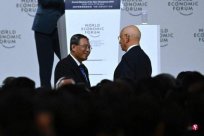After a month after the suspected feeding case was extended in the kindergarten in New Taipei City, Taiwan, it has been surveyed by the Shilin District Prosecutor's Office.Prosecutors believe that the case does not involve criminal acts.
According to the Taiwan Wind Media report, the Shilin District Procuratorate announced on Wednesday (June 28) that it has completed an investigation of suspected medicine feeding in the kindergarten in Xizhi District, New Taipei City.
The Shilin Procuratorate explained that the prosecutor took the initiative to investigate the case on the 15th of this month.After a day -to -day investigation, the project team retracted the relevant monitor, intensive interrogation responsible for medical staff and relevant personnel of the medical institution, and entrusted professional medical institutions to conduct urine tests for school children.
Prosecutors pointed out that the students in the case were reviewed by Taipei Rong, and the "Benzodiazepines" ingredients were not verified after the test.The results of comprehensive personnel certificates, physical evidence, documentary certificates, and professional medical inspection, after careful investigation by the director and prosecutor of the project team, believed that the case did not involve criminal acts, and the report will be reported in accordance with the law.
A kindergarten in Banqiao District, New Taipei City, Taiwan, broke out earlier this month that faculty members asked unobstructed children to take potions with sleeping pills.The outside world believes that this case has impacted Hou Youyi's presidential election.
However, 27 children involved in kindergartens were not tested by urine testing, and phenobarbur composition was not detected.Public opinion questioned that the whole case was likely to be an oolong.
The New Taipei City Government also pointed out on Monday (June 26) that phenobarbur testing as a critical value in the kindergarten was detected by the liquid -phase analysis skewers, and it was confirmed that the young child's blood was confirmed.It was not detected in phenobari, and said that the parents of the young child thought it was an oolong incident.


